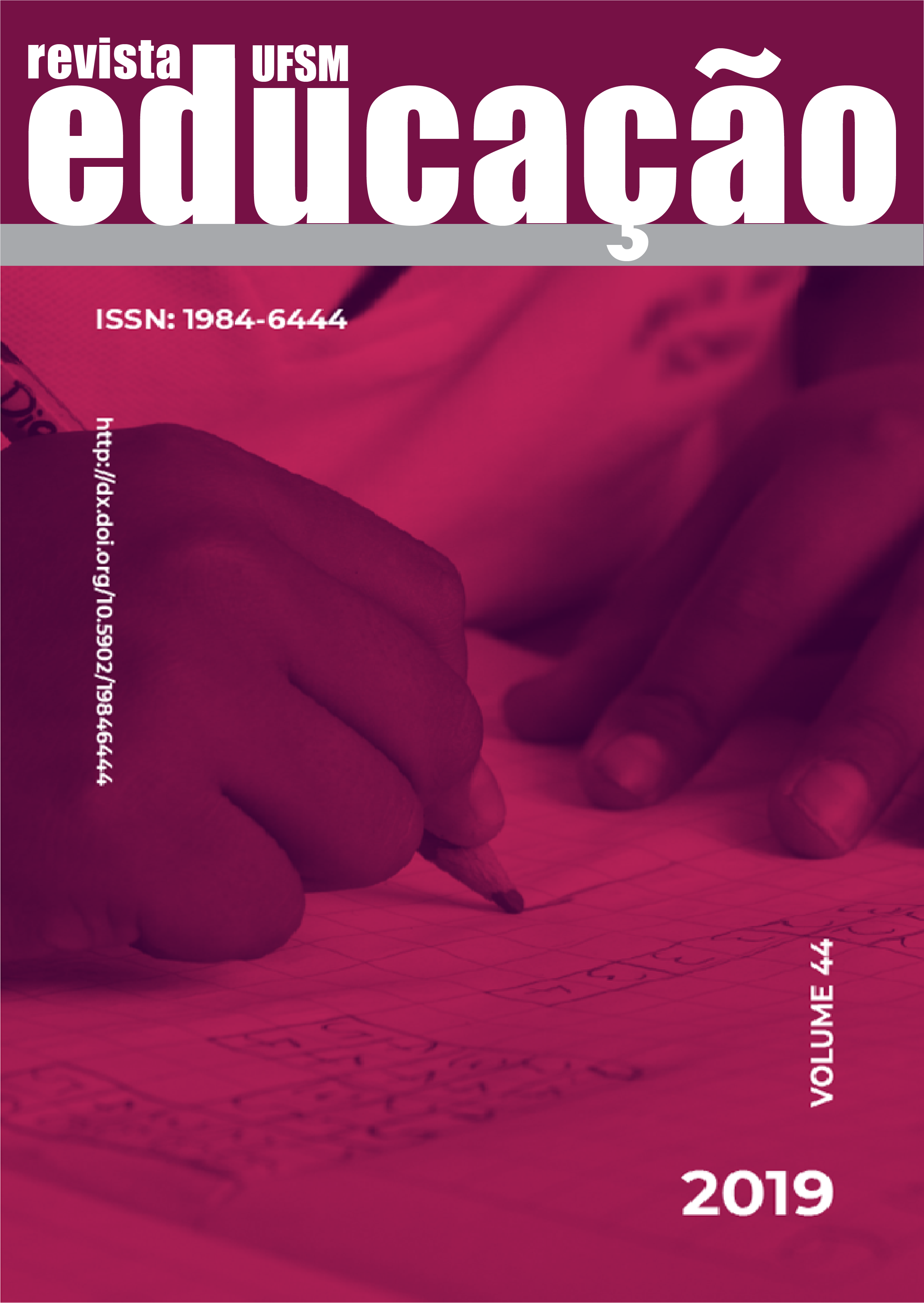Technologies and Education: UNESCO's discourse
DOI:
https://doi.org/10.5902/1984644437288Keywords:
Technology, UNESCO, Contemporary Educational Policies.Abstract
The article presents documents produced by the United Nations Educational, Scientific and Cultural Organization (UNESCO) that highlight the prevalence of Information and Communication Technologies in the direction of contemporary educational policies contributing to the discourse of emptying and expropriation of teaching work. The interpretation of the documentary corpus in this work is supported by the Critical Discourse Analysis (ACD), formulated by Norman Fairclough (1989, 2001). Fairclough is recognized for its significant contribution in establishing a methodological framework that allows us to investigate the relationship between discourse and social change, specifically with the language production practices within which social life is produced, whether economic, political or cultural. Fairclough's theory proposes to analyze the role of language and other semiotic elements, such as images, in the reproduction of social practices and ideologies. It is concluded that the discourses of UNESCO have in their principles the tendency to the technological fetish without, however, mentioning the modalities of teaching or methodologies necessary to the intensive use of ICT in Education.References
BRASIL. Secretaria de Educação Média e Tecnológica. PCN + Ensino Médio. Orientações Educacionais Complementares aos Parâmetros Curriculares Nacionais. Brasília: MEC, 2002.
FAIRCLOUGH, Norman. Language and power. New York: Longman, 1989.
FAIRCLOUGH, Norman. Discurso e mudança social. Brasília: Editora Universidade de Brasília, 2001.
FERNANDES, Florestan. Sociedade de Classes e Subdesenvolvimento. 3. ed. Rio de Janeiro: Zahar, 1975.
KUENZER, Acácia Zeneida. As relações entre conhecimento tácito e conhecimento científico a partir da base microeletrônica: primeiras aproximações. Educar em revista, Curitiba, v. especial, n. 10, p. 13-33, 2003.
LEHER, Roberto. Educação no governo Lula da Silva: A ruptura que não aconteceu. In: MAGALHÃES et al. Os anos Lula: contribuições para um balanço crítico, 2003-2010. Rio de Janeiro: Garamond, 2010, p.369-412.
SHIROMA, Eneida Oto; CAMPOS, Roselane Fátima; GARCIA, Rosalba Maria Cardoso. Decifrar textos para compreender a política: subsídios teórico-metodológicos para análise de documentos. Perspectiva, Florianópolis, v. 23, n. 2, p. 427-446, jul. /dez. 2005.
UNESCO. Organização das Nações Unidas para a Educação, Ciência e Cultura. Cátedra UNESCO de Gestión de la Educación Superior de la UPC: Calidad en la docencia y formación del profesorado. Boletín de Educación Superior, nº 1, 1/06/2001.
UNESCO. Organização das Nações Unidas para a Educação, Ciência e Cultura. A Tecnologia, Informação e Inclusão. TICs na Escola. V.01, nº 03, 2008. Disponível em: https://goo.gl/suGp0F. Acesso em: 12 mar. 2019.
UNESCO. Organização das Nações Unidas para a Educação, Ciência e Cultura. Padrões de competência em TIC para professores. UNESCO, 2009. Disponível em: https://goo.gl/6m4D87. Acesso em: 11 mar. 2019.
UNESCO. Organização das Nações Unidas para a Educação, Ciência e Cultura. Relatório de Monitoramento Global de EPT 2013/2014: Ensinar e aprender: alcançar a qualidade para todos. Paris: Edições Unesco, 2014. 56 p. Relatório conciso. Disponível em: https://goo.gl/QvxjsG. Acesso em: 13 mar. 2019.
UNESCO. Organização das Nações Unidas para a Educação, Ciência e Cultura. Relatório Conciso de Monitoramento Global – Educação Para Todos 2000-2015: progressos e desafios. UNESCO, 2015. Disponível em: https://goo.gl/M6HUIJ. Acesso em: 13 mar. 2019.
UNESCO. Organização das Nações Unidas para a Educação, Ciência e Cultura. Representação da UNESCO no Brasil. UNESCO, 2016a. Disponível em: https://goo.gl/8LZA27. Acesso em: 03 mar. 2019.
UNESCO. Organização das Nações Unidas para a Educação, Ciência e Cultura. Relatório de Monitoramento Global da Educação. UNESCO, 2016b. Disponível em: https://goo.gl/J1a7LO. Acesso em: 12 mar. 2019.
Published
How to Cite
Issue
Section
License
Declaration of originality
We declare that all articles present in the journal Educação (UFSM) are originals and were not submitted for publishing on any other publication, as a whole or a fraction. We also declare that, after being published by Educação (UFSM), a paper will not be submitted to another journal within two years. After this time, our journal transfers the publishing rights to the authors, with a permit granted by the Editorial Council.
We also acknowledge that the originals’ submission to Educação (UFSM) implies on a transference of copyright for physical and digital publishing to the journal. In case of noncompliance, the violator will receive sanctions and penalties predicted by the Brazilian Copyright Protection Law (n. 9610, dated 19/02/98).
Attribution 4.0 International (CC BY 4.0)
This license lets others remix, transform, and build upon the material for any purpose, even commercially, and copy and redistribute the material in any medium or format.

This work is licensed under a Creative Commons Attribution 4.0 International (CC BY 4.0)






